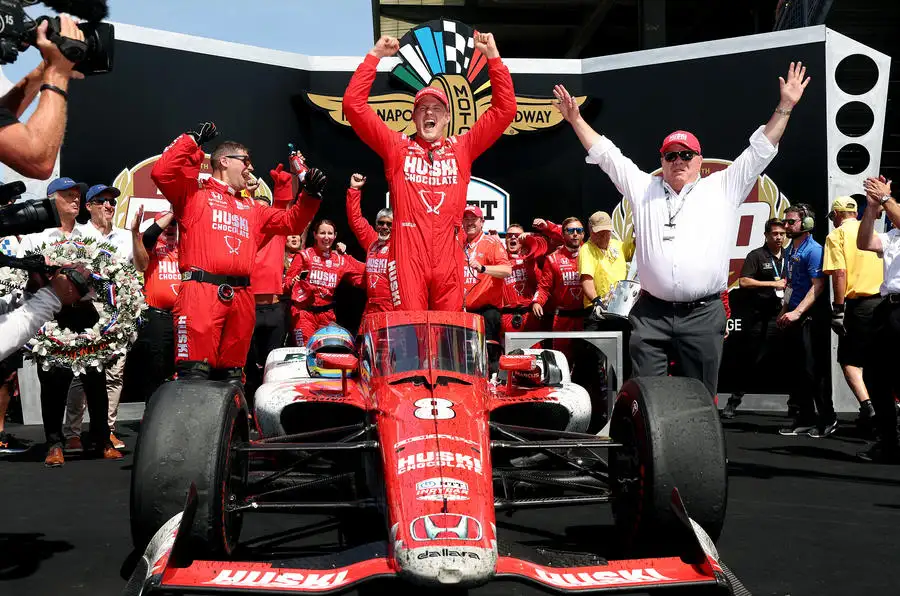He was a journeyman in Formula 1, respectable but never likely to progress beyond Sauber – especially as he carried the toxic label of ‘pay driver’.
That’s why after 97 grands prix, initially with Caterham and then over four seasons with the middling Swiss team now known as Alfa Romeo, he was right to look west to the land of opportunity.
Four seasons in and amid his third with Chip Ganassi Racing’s crack IndyCar team, Marcus Ericsson has hit the pinnacle by becoming an Indianapolis 500 winner. His life will never be the same again. On the same day and on the other side of the Atlantic, Sergio Perez out-performed Max Verstappen and made the most of Red Bull’s sharp pitstop strategy to win the Monaco Grand Prix, the race most Formula 1 drivers covet more than any other. But while joining the Monaco club is special, F1 racers desire a world championship above it.
In the US, the opposite is true: give drivers a choice of an Indycar title or a win at the Indy 500 and it’s just not a question, for any of them. Drinking the traditional quart of Indiana milk, slipping on the ridiculously oversized winner’s ring and getting your face moulded on to the giant Borg Warner Trophy… it’s like winning the Masters in golf, the Grand National in horse racing or an Olympic gold medal. People look at you differently after you’ve conquered the 500.
NO ONE IS IMMUNE TO PRESSURE
In a way, Ericsson’s was a typical under-the-radar Indy win. Overshadowed even within his own team by Scott Dixon and Alex Palou, the 31-year-old Swede quietly kept himself in the game, lapping among the frontrunners without looking like an obvious threat.
For the first 150 laps at Indy, the key is not to try and win the race but rather to avoid losing it. Dixon and Palou worked together at the front of the field, attempting to save fuel in the way peloton riders save energy in cycling. They looked tough to beat – only for both to be undone in a blink by pitlane transgressions.
Palou’s downfall was pure bad luck when an ill-timed accident for Brit Callum Ilott meant the reigning IndyCar champion needed fuel at exactly the moment the pitlane was closed. His emergency stop, breaking the brief service ban, relegated him to the back and dropped him out of contention. Dixon’s loss, at his last pitstop on lap 175 of 200, was far harder to take – because it was all his own doing.
He braked too late on the way in, locked up and broke the pitlane speed limit. A rookie error, from a 41-year-old sixtime champion considered among Indycar’s all-time greats. Yet he’s only won the Indy 500 once, way back in 2008. This race is an obsession for the Kiwi, his friend Max Chilton on pundit duty in the Sky TV studio pointing out Dixon would likely swap all those titles for another Brickyard victory ring. In the heat of the moment, even one of the best proved fallible. Without that small slip, he was odds-on.





Add your comment